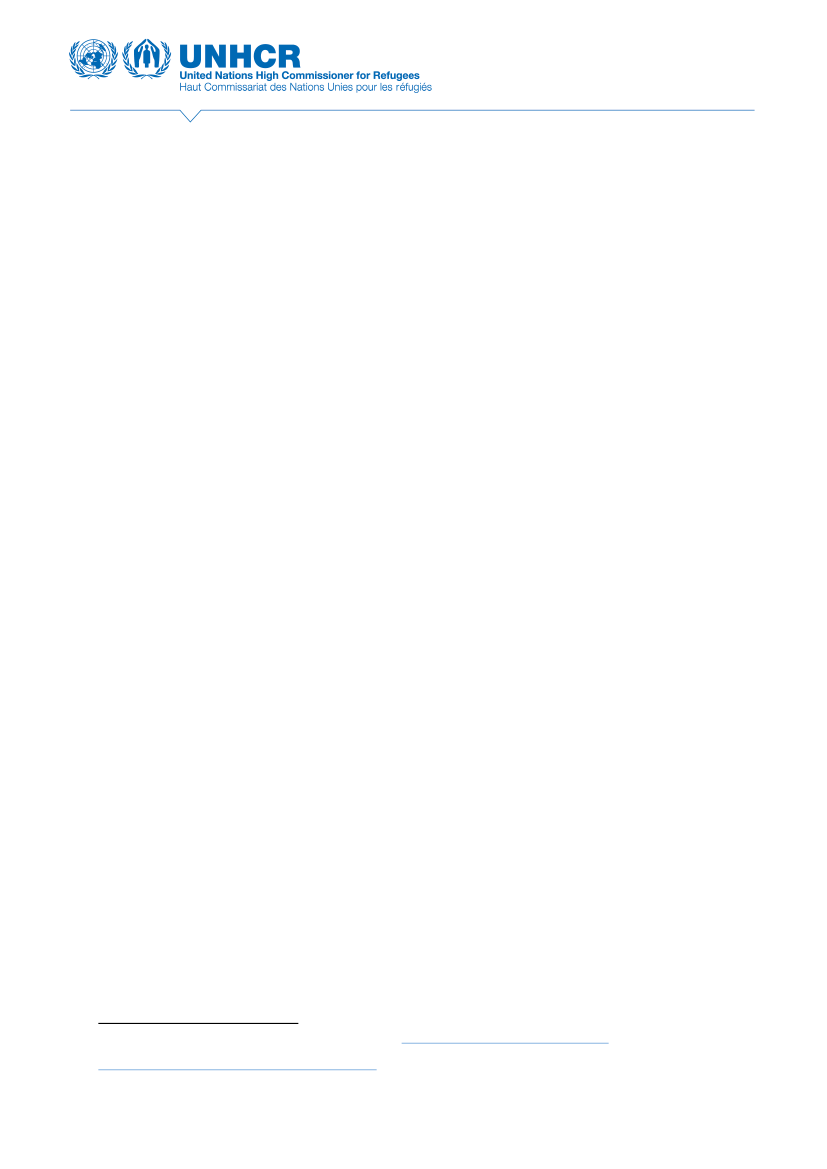
UNHCR recommendations to Denmark on strengthening refugee protection in
Denmark, Europe and globally
This document sets out a number of recommendations, which the Representation for the Nordic and
Baltic Countries of the United Nations High Commissioner for Refugees (UNHCR) has developed, with a
view to further strengthen the protection of refugees in Denmark, as well as to support Denmark’s
engagement in European and international fora where issues of refugee protection and asylum are being
discussed. The recommendations are addressed to the Danish Government, parliamentarians and all
other relevant actors and stakeholders and aim at contributing to constructive discussions on
improvements of the protection and integration systems for refugees and stateless persons at the
national, regional and international level.
UNHCR offers these recommendations as the agency entrusted by the UN General Assembly with the
global mandate to provide international protection to refugees and, together with Governments, seek
permanent solutions to their plight.
1
UNHCR is responsible for supervising the application of the 1951
Convention relating to the Status of Refugees (1951 Convention) – to which Denmark is a State party.
The UN General Assembly has further entrusted UNHCR with a global mandate to provide protection to
stateless persons worldwide and for preventing and reducing statelessness.
2
1. Introduction
For decades, Denmark has made important contributions to international refugee protection – including
through maintaining a well-established asylum and reception system, engaging in comprehensive
integration efforts and participating in UNHCR’s resettlement programme. As one of the first parties to
sign on to the 1951 Convention, Denmark has a long tradition of providing sanctuary to those in need of
international protection. Denmark is also a State party to both the 1954 and 1961 Statelessness
Conventions and has over the years demonstrated a strong commitment to support efforts to end
statelessness.
Like in several other European countries, the issues around refugee protection have increasingly been
the subject of intense political and public debate in Denmark over the past decade – a politization that
has led to an increasingly restrictive climate and regrettably at times have been accompanied by a harsh
rhetoric and measures that have undermined the public support for the protection and integration of
refugees.
With regard to Denmark’s engagement on global refugee issues, UNHCR appreciates the strong
partnership and cooperation that exists between Denmark and UNHCR in supporting the protection of
the high number of forcibly displaced persons around the world and in the search for solutions to their
plight. Denmark is a very important donor to UNHCR’s global activities, enabling UNHCR to address
critical humanitarian needs of the most vulnerable refugee populations as well as strengthening and
building capacity in host countries.
1
2
UN General Assembly, UNHCR Statute, 14 December 1950,
www.refworld.org/docid/3ae6b3628.html,
para. 1.
UN General Assembly Resolution A/RES/50/152, 9 February 1996, available at:
http://www.unhcr.org/refworld/docid/3b00f31d24.html,
reiterated in subsequent resolutions.